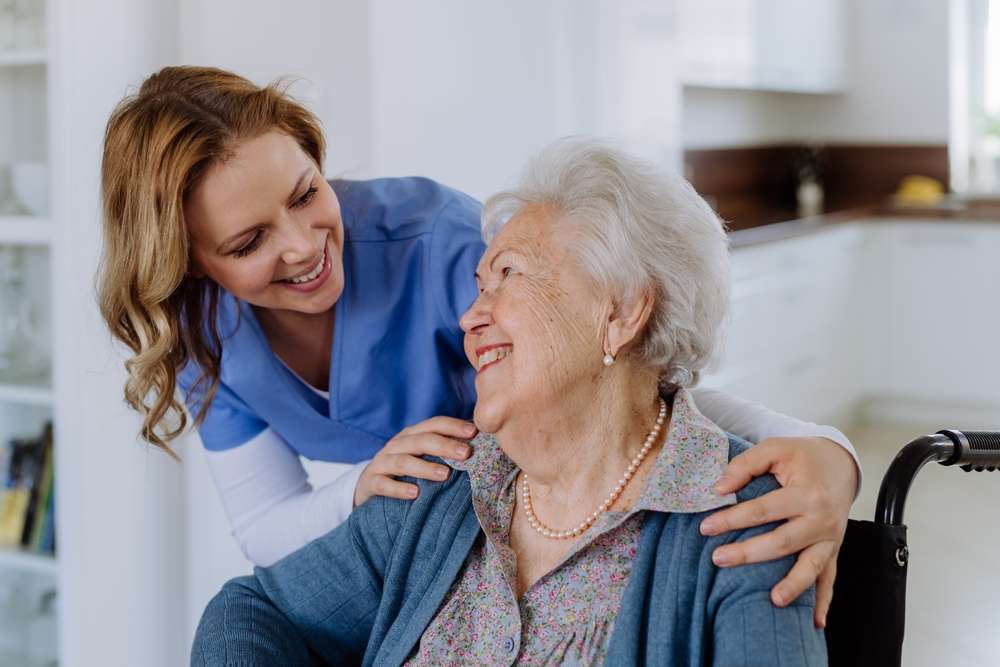What Are the Essential Skills Needed in Elderly Care Today?
Caring for elderly individuals requires a unique combination of technical knowledge, emotional intelligence, and practical skills. As the aging population continues to grow, the demand for qualified caregivers with specialized abilities has never been higher. Modern elderly care extends far beyond basic assistance, encompassing complex medical management, emotional support, and safety coordination. Understanding these essential competencies helps both aspiring caregivers and families make informed decisions about quality care options.

The landscape of elderly care has evolved significantly, requiring caregivers to master a diverse set of skills that address both physical and emotional needs. Today’s care providers must navigate complex medical situations while maintaining the dignity and independence of those they serve. This comprehensive approach ensures that elderly individuals receive not just assistance, but genuine support that enhances their quality of life.
The Importance Of Communication Skills In Elderly Care
Effective communication forms the foundation of quality elderly care. Caregivers must adapt their communication style to accommodate hearing difficulties, cognitive changes, and varying cultural backgrounds. Clear, patient dialogue helps prevent misunderstandings about medication schedules, dietary restrictions, and daily routines. Active listening skills enable caregivers to recognize subtle changes in mood or health status that might otherwise go unnoticed. Additionally, strong communication facilitates coordination between family members, healthcare providers, and other care team members, ensuring continuity of care across all settings.
Understanding The Role Of Empathy In Caregiving
Empathy distinguishes exceptional caregivers from those who merely complete tasks. This emotional intelligence allows care providers to understand the frustration, fear, or sadness that elderly individuals may experience when losing independence. Empathetic caregivers recognize that resistance to care often stems from a desire to maintain dignity rather than simple stubbornness. By approaching each interaction with genuine understanding, caregivers can reduce anxiety and create more cooperative relationships. Empathy also helps caregivers advocate effectively for their clients’ needs and preferences within healthcare systems.
Navigating Medical Needs And Medication Management
Modern elderly care requires substantial medical knowledge and attention to detail. Caregivers must understand common age-related conditions such as diabetes, hypertension, and dementia to provide appropriate support. Medication management involves more than simply dispensing pills; it requires understanding drug interactions, side effects, and proper timing. Caregivers must also recognize warning signs that require immediate medical attention, such as changes in breathing patterns, sudden confusion, or signs of infection. Documentation skills are equally important, as accurate records help healthcare providers make informed treatment decisions.
Essential Safety Practices For Elderly Care Providers
Safety awareness permeates every aspect of quality elderly care. Caregivers must identify and address fall hazards, ensure proper nutrition and hydration, and maintain clean environments to prevent infections. Understanding proper body mechanics protects both the caregiver and the elderly individual during transfers and mobility assistance. Emergency preparedness includes knowing how to respond to medical crises, natural disasters, and equipment failures. Technology literacy has become increasingly important, as many safety systems now rely on digital monitoring devices and emergency alert systems.
Building Trust And Rapport With Elderly Individuals
Trust develops gradually through consistent, respectful interactions that honor the elderly person’s autonomy and preferences. Successful caregivers learn about their clients’ life histories, interests, and routines to provide personalized care that feels natural rather than institutional. Maintaining confidentiality and respecting privacy boundaries strengthens these relationships over time. Cultural sensitivity ensures that care approaches align with individual values and traditions. Building rapport also involves recognizing and celebrating small victories, whether it’s successfully completing physical therapy exercises or enjoying a favorite meal.
| Service Type | Average Hourly Rate | Key Features |
|---|---|---|
| Home Health Aide | $15-25 per hour | Personal care, light housekeeping, companionship |
| Certified Nursing Assistant | $18-30 per hour | Medical monitoring, medication assistance, skilled care |
| Adult Day Programs | $50-80 per day | Social activities, meals, supervised care |
| Live-in Caregiver | $150-300 per day | 24-hour availability, comprehensive care |
| Respite Care Services | $20-35 per hour | Temporary relief for family caregivers |
Prices, rates, or cost estimates mentioned in this article are based on the latest available information but may change over time. Independent research is advised before making financial decisions.
The essential skills required for elderly care continue to expand as healthcare becomes more complex and personalized. Successful caregivers combine technical competencies with emotional intelligence, creating environments where elderly individuals can maintain dignity while receiving necessary support. These skills not only improve care outcomes but also enhance job satisfaction for caregivers who find meaning in making a positive difference in others’ lives. As the field continues to evolve, ongoing education and skill development remain crucial for providing the highest quality care to our aging population.
This article is for informational purposes only and should not be considered medical advice. Please consult a qualified healthcare professional for personalized guidance and treatment.




